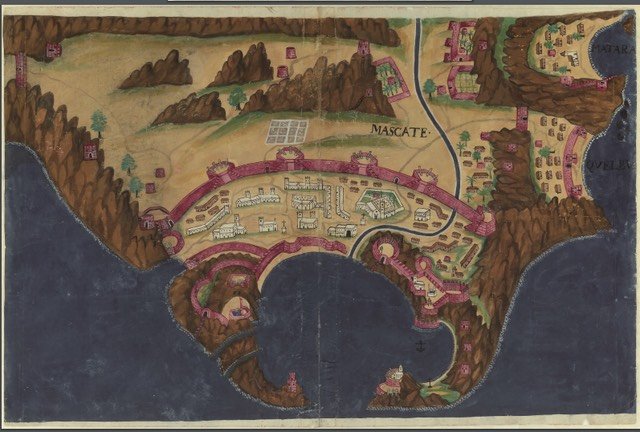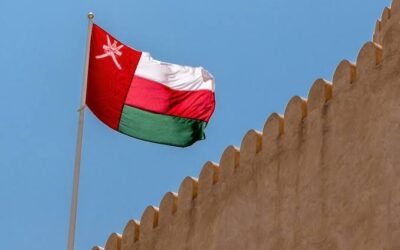Omani Qahtan: Terrifying Portuguese Colonialism
Nasr Al Busaidi writes, “In light of the affliction that the Omanis suffered under the Portuguese-Spanish colonization of most of the cities of the Omani coast for more than a century and a half there was no central Omani government that could gather and unify the Omani resistance against this occupation, which greatly stifled Oman as a result of their control over maritime trade and the imports and exports of Omani ports.
Their siege was extremely stifling, and they brutally crushed all scattered attempts at resistance. So that it will not be repeated despite not submitting and surrendering to individual attempts to resist them, which failed as a result of weakness and primitive weapons infront of the power of Portuguese cannons! I was fortunate enough to trace this colonialism and its features through Portuguese documents in the Sea of Oman, and I was very shocked that the Omani resistance organized under one leadership did not slow down from 1507 AD until 1592 AD.
When I refer to the latter date, I am here talking about an important document that mentions a leading Omani figure by the name of Imam Qahtan. Or the Emperor of Arabia, as the Portuguese document refers to him. The importance of this document is due to the fact that it is the only one that mentions an organized Omani resistance led by Imam Qahtan. What is surprising is that Qahtan’s personality, unfortunately, and despite extensive research, we did not find any biography of him in the Omani history books that lived through that period.
This is, of course, a surprise in addition to the extreme strangeness in the absence of Any ancient Omani source contemporary with colonialism wrote about its woes and resistance! I believe, from my point of view, that there is a religious trend coupled with the fatwa not to write about this colonialism and to completely erase it, just as many ancient Omani historians did by erasing the features and identity of the Nabahana state due to the political-intellectual disagreement regarding their rule. This personal interpretation, which I find to be the closest to logic, is nothing but an attempt to escape the dilemma of the biggest question for us as researchers in the history of Oman: Why did the people of Oman, contemporary with colonialism, not chronicle all these events for 147 years?! Thus, we have lost the efforts of leaders and the blood of martyrs who tried hard to resist this Portuguese-Spanish occupation, which today resembles the Zionist occupation of the land of Palestine!
In addition to all of the above, this is the Portuguese document that was sent to the king and tells him about the suffering of the monk Sebastian, who came from Lisbon heading to India to build several churches and to take the inheritance of one of the sons of the ministers of Hormuz, whose name is Nour al-Din, who wrote all his properties in favor of the Noosa Monastery Church in Lisbon after his death. Friar Sebastian was in conflict with the monk who heads the Portuguese Church in India, whose name is Marcos, with the support of the Viceroy there, in order to steal the inheritance of the son of the Minister of Hormuz. However, after finding this conspiracy in India, Friar Sebastian fled, heading to Oman and from there to Hormuz to take the inheritance before them all and return to Portugal. ! During his escape from India, accompanied by his followers, his ship was wrecked near Masirah, forcing him to go on foot with his companions to Ras al-Hadd, then Sur, then Qalhat, and from there to Muscat, Al-Suwaiq, Sohar, and then to Hormuz! One of his followers recorded this escape with all the amazing details in which he mentioned their terror and fear that they would be arrested or killed by Imam Qahtan and his soldiers! The document is very long, but I will try hard to shorten it in an appropriate way, as it documented for us important signals from the Omani leader Qahtan.
What concerns us from all of this are the signs that undoubtedly point to the strength of the Omani Imam Qahtan and his resistance to Portuguese-Spanish colonialism in a period that was very difficult in the history of Oman. The strangest thing of all is that we do not find so far any Omani historical source that mentions him and his efforts in resistance except this one. The Portuguese document in 1592 AD. Who, I wonder, is Imam Qahtan?!
Credit: Nasr Al Busaidi




